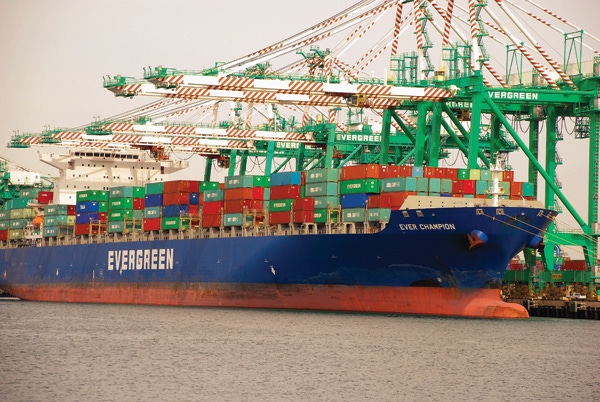WTO director-general steps down while criticism of globalization continues to rise.

At a virtual meeting of all World Trade Organization members on May 14, WTO Director-General Roberto Azevêdo announced that he would step down on Aug. 31, cutting his second term short by exactly one year. The action looks to further complicate issues at WTO, especially as discussions heat up regarding the need to look more inwardly for food supplies.
Earlier in May, the European Union and 19 other WTO members officially notified the agency of their agreement to create a new and interim appeal court to resolve trade disputes among members. WTO's Appellate Body stopped functioning in December 2019. The announcement essentially isolates the U.S., which had blocked the selection of judges to the WTO Appellate Body and had not agreed to reform proposals. The members will now create a pool of 10 judges who could be called on to hear future appeals.
Azevêdo began as director-general seven years ago and, under his watch, eliminated agricultural export subsidies and enabled more goods and services exports from least-developed countries. However, the need for WTO reform remains.
“We know that the WTO cannot stand frozen while the world around it changes profoundly,” he said in announcing his departure. “Ensuring that the WTO continues to be able to respond to members’ needs and priorities is an imperative, not an option. The ‘new normal’ that emerges from the COVID-19 pandemic will have to be reflected in our work here.”
Azevêdo added, “The WTO may not be perfect, but it is indispensable all the same. It is what keeps us from a world where the law of the jungle prevails, at least as far as trade is concerned.”
That jungle is what may be coming.
Earlier this month, Sen. Josh Hawley (R., Mo.) introduced a joint resolution to withdraw the U.S. from WTO.
“We need to return production to America, secure critical supply chains and encourage domestic innovation. Pulling out of the WTO is a good first step," Hawley said.
Sen. Chuck Grassley (R., Iowa), chairman of the Senate Finance Committee that oversees trade matters, warned: “Withdrawing from the WTO would only leave a vacuum for China to fill and diminish America’s position of strength.”
This week, during President Donald Trump’s White House event announcing his aid for farmers, he made the surprise comment about terminating trade deals with any country that sends live beef cattle to the U.S. Interestingly, only Canada and Mexico fit into that category.
"I read yesterday where we take some cattle in from other countries, we have trade deals. I think you should look at terminating those deals," the President said. "We have a lot of cattle in this country.”
U.S. Cattlemen’s Assn. president Brooke Miller responded that “we greatly appreciate the President's comments on the need to stem the influx of imported cattle into this country. Our nation’s strength lies in our ability to produce a safe, abundant and affordable food supply. We need to preserve this food security by creating opportunities for U.S. agricultural producers to thrive.”
The National Cattlemen’s Beef Assn. warned against eliminating the trade agreement with Canada and Mexico. “Beef trade is a complex business, and America’s cattle producers rely on safe and reliable international trading partners, both as a destination for the undervalued cuts we produce here, such as hearts, tongues and livers, and for importation of lean trim for ground beef production to meet strong consumer demand. Approximately 12% of beef consumed in the U.S. is imported product, but that product must meet the U.S. standards for safety before it is allowed into our market.”
Simon Evenett, creator of the Global Trade Alert and professor at the University of St. Gallen in Switzerland, said he’s concerned about the broader discussions about whether America should turn inwards and limit trade with other countries.
Since 1970, there have been six major surges in the prices of commodities, and countries tend to trigger placing curbs on exports. The last big outburst of export curbs came from 2008 to 2011 and was universally negative. Fortunately, despite some initial discussions of export curbs following the pandemic, many have relaxed those except for Russia’s wheat export limits. The U.S. is a massive exporter of most meat products, but there are also a lot of other countries that export meat products if the U.S. does get in a situation where there are domestic meat shortages, Evenett explained.
“The ability to source from abroad, and being open to trade or globalization, is actually a benefit when supply chains get in trouble,” Evenett said. “We should leverage globalization, not turn your back on it. Agricultural supply chains make that point very nicely.”
About the Author(s)
You May Also Like



.png?width=300&auto=webp&quality=80&disable=upscale)

